Instant Opinion: Is Boris Johnson a ‘war leader’?
Your guide to the best columns and commentary on Monday 23 August
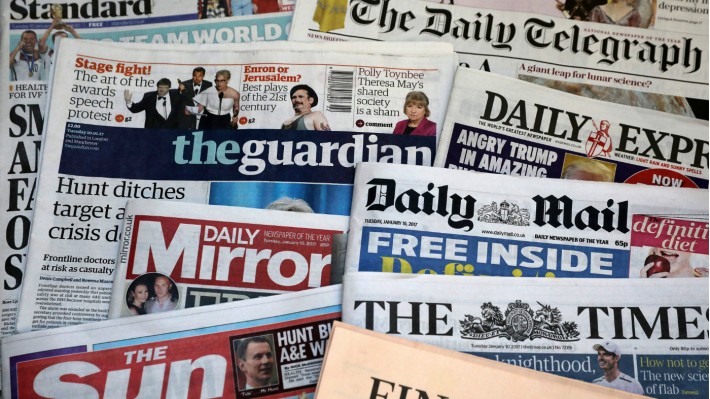
A free daily email with the biggest news stories of the day – and the best features from TheWeek.com
You are now subscribed
Your newsletter sign-up was successful
The Week’s daily round-up highlights the five best opinion pieces from across the British and international media, with excerpts from each.
1. The editorial board in The Times
on Boris Johnson and coronavirus
The Week
Escape your echo chamber. Get the facts behind the news, plus analysis from multiple perspectives.

Sign up for The Week's Free Newsletters
From our morning news briefing to a weekly Good News Newsletter, get the best of The Week delivered directly to your inbox.
From our morning news briefing to a weekly Good News Newsletter, get the best of The Week delivered directly to your inbox.
War Leader
“The coming weeks will be critical to preserving public confidence. The death toll will rise and many will fall sick. If the NHS is overwhelmed, forcing doctors to deny potentially lifesaving treatment to those who need it, the public may come to ask why schools, pubs and restaurants were not forced to close sooner. They may ask why there was no action to order new ventilators and protective equipment two months ago rather than waiting until last weekend. And if the government is forced to introduce even more stringent restrictions to halt an escalating epidemic, they may ask why they weren’t introduced sooner, as they have been in much of the rest of the world. The country needs to know that Mr Johnson has a coherent strategy. Otherwise the prime minister who dreamt of being Churchill may find himself cast as Neville Chamberlain.”
2. Nick Timothy in The Telegraph
on community and the coronavirus
A free daily email with the biggest news stories of the day – and the best features from TheWeek.com
From work to education to politics, nothing will be the same again
“We are, in different ways, showing that we understand that we depend on one another and, while we are all individuals with our own wants and needs, we are also members of something bigger. We are remembering that national life is not about the individual stories of some 60-odd million people, but the challenges we meet together. We are rediscovering the importance of community, institutions and the state. When this is over – or more accurately, when we are over the worst of something we might need to continue to live with – there will be no going back. And not just because, after bailing out business on an unbelievable scale, taxpayers will demand a different future. It will simply be impossible for ministers to return to the politics and economics of individualism after exhorting us to play our parts in a collective national effort.”
3. Nesrine Malik in The Guardian
on a ticking time-bomb
This virus is ravaging rich countries. What happens when it hits the poor ones?
“If we are concerned about the failure to contain the virus in western Europe and the US, multiples of that horror await in the developing world. With few means of medical intervention, and several other risk factors such as malnutrition, high population densities, communal living and lack of access to water and washing facilities, the rates of mortality could dwarf what has been seen so far in the west. And economically, the virus risks ushering in an ice age. There are no war chests, no stimulus packages, no insurance payouts.”
–––––––––––––––––––––––––––––––For a weekly round-up of the best articles and columns from the UK and abroad, try The Week magazine. Start your trial subscription today –––––––––––––––––––––––––––––––
4. Neve Gordon and Catherine Rottenberg on Al Jazeera
on the role of government
The coronavirus conundrum and human rights
“As governments attempt to address the pandemic, we are beginning to witness a twofold approach characterised by governmental overreach on the one hand and by insufficient governmental reach on the other. Both approaches are likely to have a dramatic effect on basic human rights for hundreds of millions of people. Indeed, it is no hyperbole to say that more people will suffer and even die as a result of the way governments choose to handle the crisis than from contracting the virus.”
5. Ivan Krastev in the New Statesman
on the anti-globalisation virus
The seven early lessons of the global coronavirus crisis
“It is still early days in speculating about the long political impact of Covid-19. But it is already clear that it is an anti-globalisation virus, and that the opening of borders and mixing of peoples will be blamed for the catastrophe. Historically, one dramatic aspect of epidemics is the desire to assign responsibility. From Jews in medieval Europe to meat mongers in Chinese markets, someone is always blamed. This discourse of blame exploits existing social divisions of religion, race, ethnicity, class, or gender identity. The coronavirus crisis has justified the fears of the anti-globalists: closed airports and the self-isolated individuals appear to be the ground zero of globalisation. It is ironic that the best way to contain the crisis of individualistic societies was to ask people to wall themselves in their apartment. Social distancing has become the new name for solidarity.”
-
 Currencies: Why Trump wants a weak dollar
Currencies: Why Trump wants a weak dollarFeature The dollar has fallen 12% since Trump took office
-
 Book reviews: ‘Hated by All the Right People: Tucker Carlson and the Unraveling of the Conservative Mind’ and ‘Football’
Book reviews: ‘Hated by All the Right People: Tucker Carlson and the Unraveling of the Conservative Mind’ and ‘Football’Feature A right-wing pundit’s transformations and a closer look at one of America’s favorite sports
-
 Judge blocks Trump suit for Michigan voter rolls
Judge blocks Trump suit for Michigan voter rollsSpeed Read A Trump-appointed federal judge rejected the administration’s demand for voters’ personal data
-
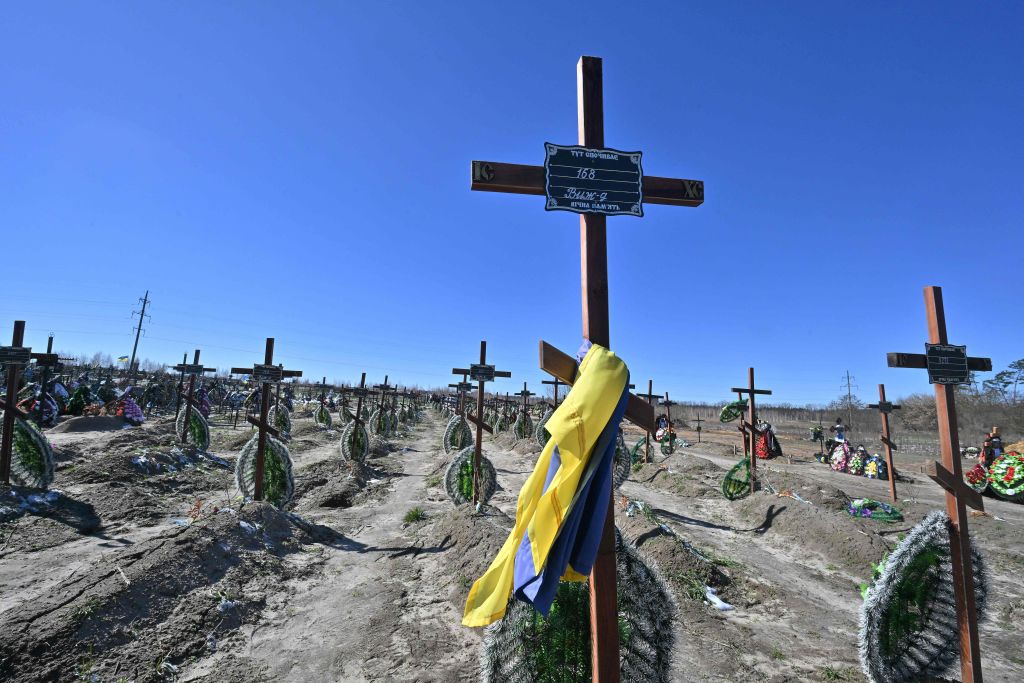 Inside Russia's war crimes
Inside Russia's war crimesSpeed Read Occupying forces in Ukraine are accused of horrific atrocities. Can they be held accountable?
-
 Boris Johnson shocks UK by resigning from Parliament
Boris Johnson shocks UK by resigning from ParliamentSpeed Read
-
 Bees delay flight for three hours
Bees delay flight for three hoursfeature And other stories from the stranger side of life
-
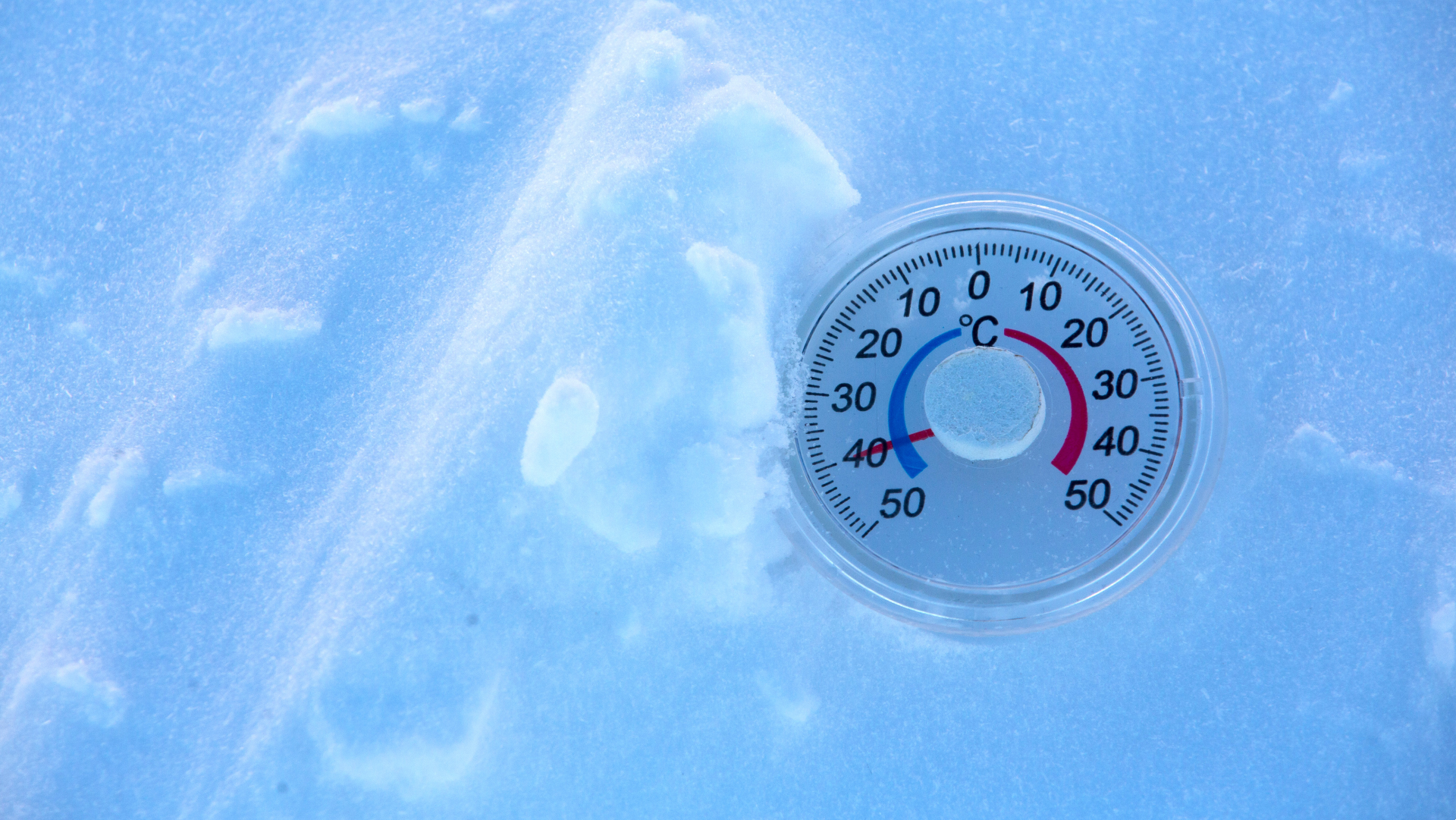 The tricky science behind reviving ‘zombie viruses’
The tricky science behind reviving ‘zombie viruses’feature 48,500-year-old pathogen poses no risk to humans, but scientists hope to learn more about impact of melting permafrost
-
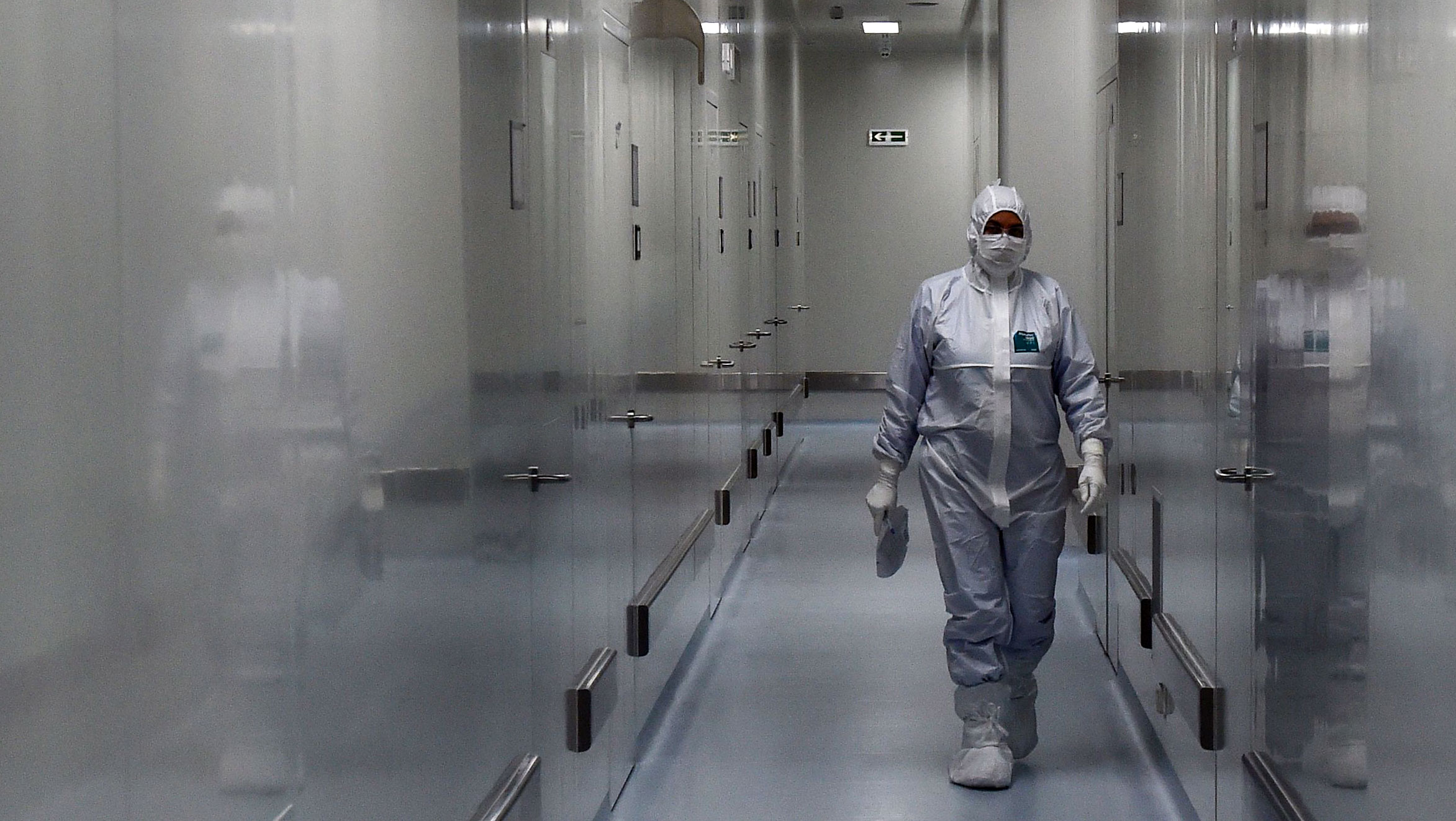 The Week Unwrapped: Immunity, Tunisia and Big Brother
The Week Unwrapped: Immunity, Tunisia and Big Brotherpodcast Will a drug called Evusheld cut Covid deaths still further? Is the Arab Spring over? And are we ready for the return of reality TV?
-
 ‘The UK’s malaise will not end with the Prime Minister’s exit’
‘The UK’s malaise will not end with the Prime Minister’s exit’Instant Opinion Your digest of analysis from the British and international press
-
 ‘Police tactics are not getting worse, they are simply being filmed’
‘Police tactics are not getting worse, they are simply being filmed’Instant Opinion Your digest of analysis from the British and international press
-
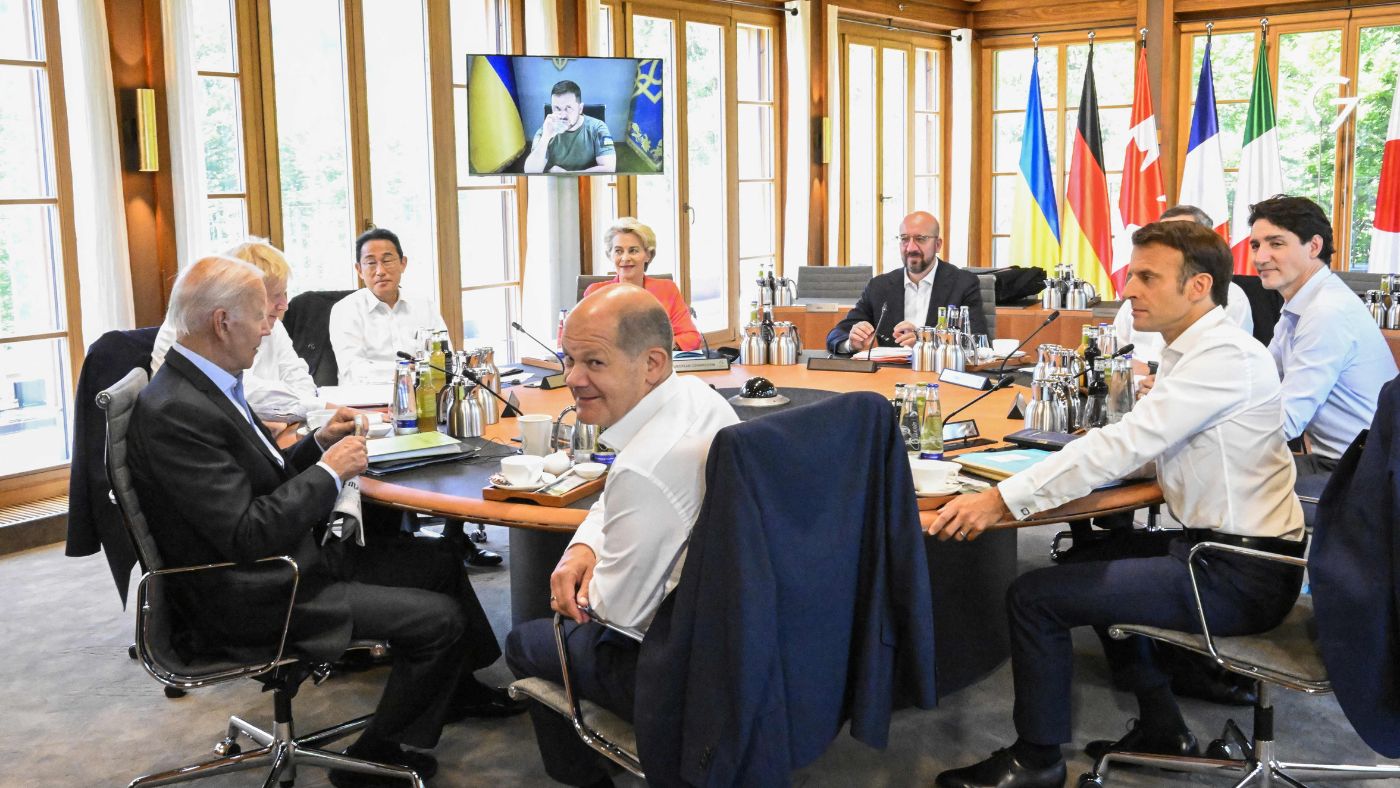 ‘G7 leaders missed a golden opportunity’
‘G7 leaders missed a golden opportunity’Instant Opinion Your digest of analysis from the British and international press